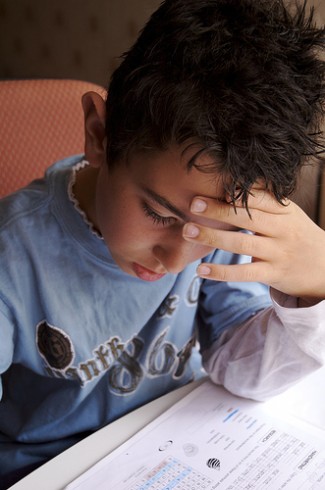
Learning Disabilities (LD) are identified when a child’s reading, mathematics, or written language test scores are significantly below what is expected for her age. By definition, a Learning Disability interferes with academic achievement, while “learning difficulties” reflect similar but milder problems in a child’s Academic Skills.
Learning Disabilities are neurological in nature. Children with Learning Disabilities are often extremely capable, but their brains operate in a such way that specific academic tasks can be extremely difficult for them.
Important facts about Learning Disabilities:
- Learning Disabilities are generally not “cured” but can be overcome with appropriate intervention.
- Learning Disabilities are common. Approximately 15% of the population has some type of learning issue.
- There is substantial evidence that while Learning Disabilities create problems in academic subjects, they may facilitate entrepreneurship and creative thinking.
The most common Learning Disabilities include:
- Dyslexia: Difficulty in reading due to problems with word recognition, decoding, fluency, and comprehension.
- Dysgraphia: Problems with written expression, difficulty in writing fluency, struggles with handwriting, and problems with writing organization.
- Dyscalculia: Difficulty in understanding, remembering, and manipulating numbers, math symbols, or facts.
- Nonverbal Learning Disability: Neurological concerns resulting in visual-spatial issues, difficulty with nonverbal communication, and organizational problems.
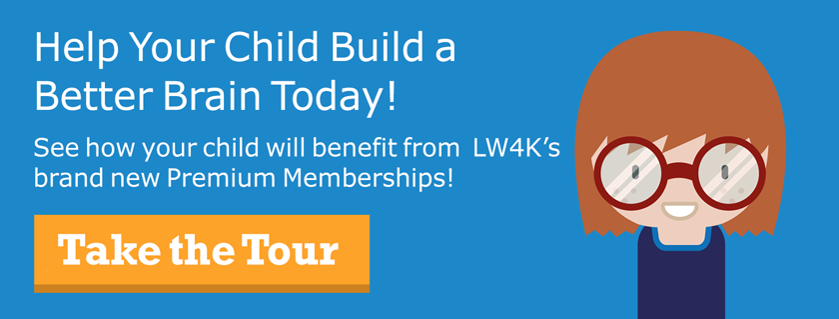 https://js.hscta.net/cta/current.js//
https://js.hscta.net/cta/current.js//
Why are video games and other digital media helpful for children with learning disabilities and learning difficulties ?
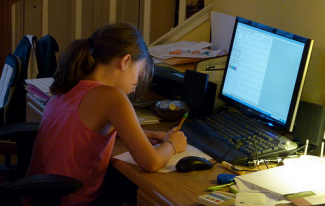 Children with learning difficulties and disabilities are often highly engaged by video games and other digital media, and tend to display less of the problems they experience in “real life” while involved with these technologies. More importantly, this deliberate use of video games and other digital media offers many ways to improve and exercise the specific learning skills that may be impaired in such a child. The following chart demonstrates how and why these technologies can be powerful tools for helping kids with learning difficulties and disabilities.
Children with learning difficulties and disabilities are often highly engaged by video games and other digital media, and tend to display less of the problems they experience in “real life” while involved with these technologies. More importantly, this deliberate use of video games and other digital media offers many ways to improve and exercise the specific learning skills that may be impaired in such a child. The following chart demonstrates how and why these technologies can be powerful tools for helping kids with learning difficulties and disabilities.
| Kids with Learning Disabilities or Learning Difficulties: |
Video Games and Other Digital Media |
| Often do not learn as well with traditional modalities such as reading and listening. |
Video games and other digital media use video, sounds, actions, and other modalities for teaching. |
| May be less attentive in a structured classroom learning environment. |
Video games and other digital media tend to be very engaging and encourage children to interact and become more active participants in the learning process. |
| Often use different parts of their brains for learning, resulting in creativity and ingenuity. |
Many types of digital media, including video games, encourage creativity and innovation. This is seen in modding, the use of Wikkis and blogs, and a variety of web-based programs such as Gamestar Mechanic and Scratch. |
| Often experience low self-esteem about their capacities as learners when comparing themselves to peers in a traditional school setting. |
Mastery of video games and other digital tools is commonly reported in children with learning difficulties due to the nonverbal skills that are required for proficiency with these tools. |
How can video games and other digital media improve Academic Skills in children with learning disabilities and learning difficulties?
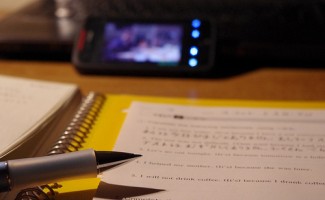
For many children with learning disabilities, learning Academic Skills is simply not fun. Video games and other digital media can often make the difficult and repetitive tasks of learning, more enjoyable for these children, allowing them to engage for longer periods of time in the repeated practice that they often need for learning.
Here are some suggestions for finding the best academic video games and other digital media for children with learning disabilities and learning difficulties:
- Try to use a variety of modalities while using digital media for teaching. For example, rather than simply have a child read a book, try and find the audio book, a movie about the topic, or even a comic book to supplement their learning.
- Get engaged with the digital media that your children are using for learning. Working either competitively or cooperatively may sustain your child’s engagement with the technology.
- Be an advocate for your children’s digital learning, especially if you see that it makes them have a more positive attitude about their learning experience. For example, children who struggle with writing tasks may benefit greatly from being able to use speech recognition software on any school task that involves substantial amounts of writing. Parents often need to advocate for a written 504 plan, Response to Intervention (RTI) plan, or Individual Education Plan (IEP) to be able to do so.
Which Thinking Skills are impaired in children with learning disabilities and learning difficulties?
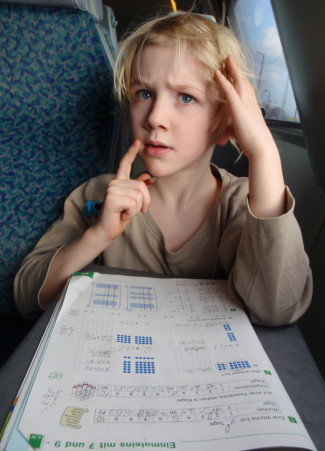 All 8 Thinking Skills are crucial to learning academic tasks. In fact, there is substantial
All 8 Thinking Skills are crucial to learning academic tasks. In fact, there is substantial
research indicating that learning thinking skills in kindergarten and early elementary school is more important to future academic success than teaching Academic Skills at the same age.
How are Thinking Skills used in academic subjects?
Working Memory: Plays a role in remembering letter sounds which is crucial for decoding words as well as in reading comprehension.
Flexibility: Making revisions in editing writing and switching approaches in complex math problems.
Focus: Sustaining attention and effort with any difficult academic task.
Self-Awareness: Checking off completed schoolwork across all subjects.
Time Management: Being able to gauge the amount of time assignments will take.
Organization: Important for presenting written material in a readable and coherent fashion.
Self-Control: Managing frustration across any academic task that may be too difficult for the
child’s current ability levels or knowledge.
Planning: Completing long-term projects and being prepared to do homework.
What are the potential problems associated with using video games and other digital media for children with learning disabilities and difficulties?
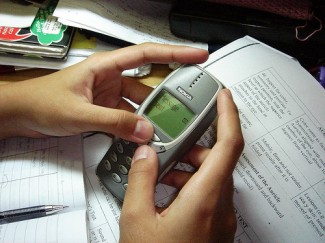 While video games and other digital media can be a powerful tool in a helping kids overcome their academic challenges, there are a number of concerns about the use of these tools for children with learning disabilities and learning difficulties.
While video games and other digital media can be a powerful tool in a helping kids overcome their academic challenges, there are a number of concerns about the use of these tools for children with learning disabilities and learning difficulties.
As a result, we encourage parents to be very judicious about and to monitor the use of digital media for children with LD. Consult the table below to see what you should watch out for and how you can go about avoiding these problems.
| Cautions |
Solutions |
| Often, kids with LD will use digital play as a means for putting off schoolwork and other less fun tasks. |
Be clear that school is more important than playing video games or surfing the Internet. Use your child’s compliance and effort in school as an opportunity for extra time in playing video games, rewarding them for specific academic achievements. |
| Kids with LD may find that they are more successful at video games than they are at academic tasks, leading them to derive more self-esteem from digital play than from real-world learning. |
Help your child find other sources of self-esteem in addition to their mastery of video games or interest in digital media. They may struggle with school, so it is important that they identify other strengths, such as with hands-on tasks, athletics, helping others, or in the arts. |
| Kids with learning disabilities or difficulties may choose to engage in digital play instead of physical activities that are part of a healthy and learning-positive lifestyle. |
Exercise has been shown to improve attention and learning in children with many types of learning difficulties. Tell your child to go out and run around before playing video games, and to play active games such as Wii Tennis or Kinect Adventures. |
What are the traditional ways of helping a child with a learning disability or learning difficulty?
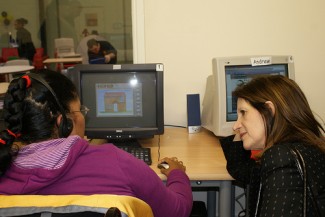 Treating learning disabilities requires far more than the digital strategies that we can teach you. A number of traditional strategies may work very well in conjunction with the methods described at Learning Works for Kids. Common interventions for children with learning disabilities include:
Treating learning disabilities requires far more than the digital strategies that we can teach you. A number of traditional strategies may work very well in conjunction with the methods described at Learning Works for Kids. Common interventions for children with learning disabilities include:
- A thorough assessment of a child’s cognitive, processing, and academic skills.
- Tutoring in the specific academic subject in which she has weakness.
- School-based interventions including: Individual Education Plans (IEP), 504 plans, and Response to Intervention (RTI).
- Tutoring in specific study skills.
- Classroom accommodations when appropriate, such as reduction in the amount of written work or accommodations in the level of reading required.








